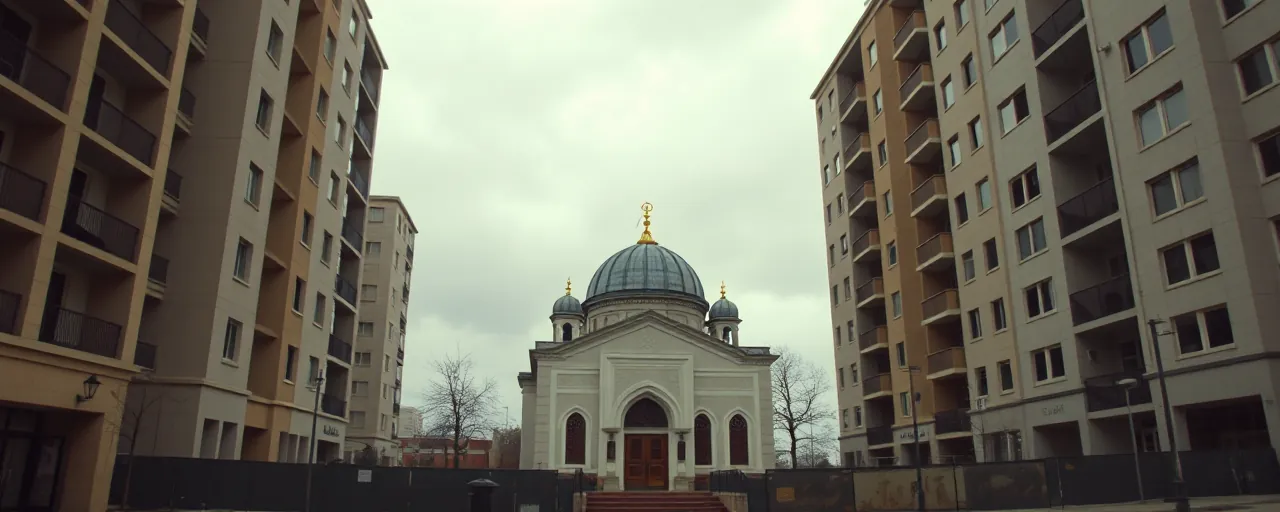A Mosque Under Siege
In the heart of Long Island, a small Islamic congregation faces an unexpected battle. Muslims on Long Island, a group that’s called Bethpage home since 1998, wants to expand their mosque to accommodate a growing flock. More space for prayer, education, and counseling isn’t a radical ask. Yet, the Town of Oyster Bay slammed the door shut, citing a zoning code that smells of selective enforcement. This isn’t just a local squabble; it’s a glaring example of bureaucratic overreach trampling on sacred rights.
The Justice Department, stepping into the fray, filed a statement of interest in federal court, backing the mosque’s claim that Oyster Bay’s rules violate the Religious Land Use and Institutionalized Persons Act. The feds argue, and rightly so, that the town’s parking requirements unfairly single out houses of worship while giving secular venues like theaters and libraries a free pass. If this doesn’t raise red flags about fairness, what does?
The Law Stands Firm
The Religious Land Use and Institutionalized Persons Act isn’t some obscure regulation; it’s a federal bulwark against discriminatory zoning. Enacted in 2000, it ensures religious institutions aren’t crushed under arbitrary rules that secular groups dodge. Oyster Bay’s code, with its tougher parking demands on mosques and churches, flies in the face of this law’s equal terms provision. The Justice Department’s Civil Rights Division, led by Assistant Attorney General Harmeet K. Dhillon, calls it what it is: unequal treatment that demands correction.
This isn’t the first time zoning laws have been wielded as weapons. Across the country, from Pennsylvania churches to California synagogues, the Justice Department has had to intervene when local governments play favorites. In Georgia, Vision Warriors Church won a fight against zoning rules blocking transitional housing for recovering addicts. These cases aren’t outliers; they’re proof that religious liberty needs constant vigilance against overzealous regulators.
Parking Rules or Religious Bias?
Let’s talk parking, the supposed heart of Oyster Bay’s defense. The town’s revised code demands more spaces for worship sites than for museums or concert halls. A mosque needs room for worshippers, sure, but why should it face stricter rules than a theater packing in crowds for a weekend show? This discrepancy isn’t just unfair; it’s a deliberate hurdle. Historically, parking requirements have tripped up religious groups, especially in dense areas where land is scarce. Older congregations, like this mosque, often lack the space to comply with modern mandates, leaving them at the mercy of local whims.
Some might argue that parking rules protect community order. Fine, but why apply them unevenly? If Oyster Bay’s concern were truly about traffic or safety, secular venues would face the same scrutiny. Instead, the town’s actions echo a troubling pattern: zoning laws that quietly target religious groups, especially minority faiths. The Justice Department’s involvement signals that such tactics won’t go unchallenged.
Why This Matters Now
This case isn’t just about one mosque; it’s about the principle of equal treatment under the law. If Oyster Bay can burden a religious group with unfair rules, what stops other towns from doing the same? The Justice Department’s push here reflects a broader commitment to rooting out zoning abuses. Since 2024, they’ve launched over 155 investigations into land use violations nationwide, with nearly 30 lawsuits filed to protect religious rights. These numbers aren’t abstract; they represent real communities fighting for their place to worship freely.
Opponents might claim local governments need flexibility to manage growth. But flexibility doesn’t mean a blank check to discriminate. When zoning laws disproportionately hit religious institutions, they erode the very freedoms that define a just society. Oyster Bay’s rules don’t pass the smell test, and the federal response proves it.
Standing Up for Liberty
The fight in Oyster Bay underscores a truth we can’t ignore: religious freedom requires active defense. The Justice Department’s stand isn’t just legal posturing; it’s a reminder that federal law protects the right to worship without unfair obstacles. For the Bethpage congregation, this case could mean the difference between a thriving community and a stifled one. For the rest of us, it’s a warning that local rules can’t override fundamental rights.
As this case unfolds, one thing is clear: Oyster Bay’s zoning code overstepped, and the pushback is justified. Religious institutions, whether mosques, churches, or temples, deserve the same fair shot as any secular group. Anything less betrays the promise of equal justice. The Justice Department has drawn a line, and it’s one worth defending.
